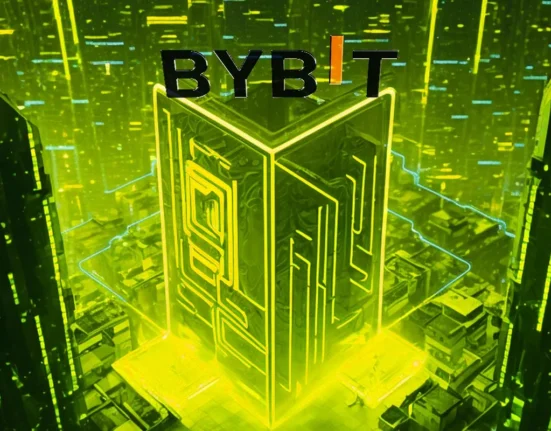The world of blockchain technology and cryptocurrency is not just a passing trend—it’s a global revolution that is reshaping industries, economies, and the way we interact with digital assets. As more individuals and businesses turn their attention to the vast potential of blockchain, a host of promising startups have emerged, bringing innovative solutions to the table. These blockchain startups are not only transforming financial systems but are also laying the groundwork for a new wave of decentralized applications that will impact every sector, from finance and healthcare to logistics, supply chain, and beyond. For those interested in jumping into the crypto world or staying ahead of the curve, keeping an eye on these emerging companies is essential. This article dives into some of the most promising blockchain startups that are making waves globally, and why they could be the game-changers you need to watch.The Rise of Blockchain and Its Global Impact
Blockchain technology is transforming industries and reshaping global systems in unprecedented ways. At its core, blockchain is a decentralized, distributed ledger that securely records transactions across multiple computers. Unlike traditional systems that rely on centralized intermediaries, blockchain empowers direct peer-to-peer transactions without the need for a middleman, offering enhanced transparency, security, and efficiency. This decentralized approach is at the heart of blockchain’s potential to disrupt and revolutionize numerous sectors worldwide.
Blockchain’s Expanding Reach
1. Financial Services and Cryptocurrencies
Blockchain’s most prominent application is in the cryptocurrency space, where digital currencies like Bitcoin and Ethereum have gained global recognition. These cryptocurrencies leverage blockchain’s ability to provide secure, transparent, and immutable records of transactions, reducing the need for banks and financial institutions in managing and transferring money.
Beyond cryptocurrencies, blockchain is revolutionizing the global financial system through Decentralized Finance (DeFi). DeFi platforms enable individuals to borrow, lend, and trade digital assets without relying on traditional financial intermediaries, democratizing access to financial services. By removing middlemen, blockchain technology reduces transaction costs, increases efficiency, and enhances financial inclusion—especially in regions where traditional banking infrastructure is lacking.
2. Supply Chain and Logistics
Blockchain is also making significant strides in the supply chain and logistics industries. By providing a transparent, immutable ledger of product movements, blockchain ensures that goods can be traced from the manufacturer to the end consumer. This level of traceability reduces fraud, ensures product authenticity, and enhances consumer trust, particularly in sectors like food safety, luxury goods, and pharmaceuticals.
Startups in the blockchain space are creating decentralized solutions to optimize supply chain management, providing real-time tracking, automated contracts, and reduced errors in documentation, ultimately leading to more efficient operations.
The Rise of Blockchain and Its Global Impact
Blockchain technology is transforming industries and reshaping global systems in unprecedented ways. At its core, blockchain is a decentralized, distributed ledger that securely records transactions across multiple computers. Unlike traditional systems that rely on centralized intermediaries, blockchain empowers direct peer-to-peer transactions without the need for a middleman, offering enhanced transparency, security, and efficiency. This decentralized approach is at the heart of blockchain’s potential to disrupt and revolutionize numerous sectors worldwide.
Blockchain’s Expanding Reach
1. Financial Services and Cryptocurrencies
Blockchain’s most prominent application is in the cryptocurrency space, where digital currencies like Bitcoin and Ethereum have gained global recognition. These cryptocurrencies leverage blockchain’s ability to provide secure, transparent, and immutable records of transactions, reducing the need for banks and financial institutions in managing and transferring money.
Beyond cryptocurrencies, blockchain is revolutionizing the global financial system through Decentralized Finance (DeFi). DeFi platforms enable individuals to borrow, lend, and trade digital assets without relying on traditional financial intermediaries, democratizing access to financial services. By removing middlemen, blockchain technology reduces transaction costs, increases efficiency, and enhances financial inclusion—especially in regions where traditional banking infrastructure is lacking.
2. Supply Chain and Logistics
Blockchain is also making significant strides in the supply chain and logistics industries. By providing a transparent, immutable ledger of product movements, blockchain ensures that goods can be traced from the manufacturer to the end consumer. This level of traceability reduces fraud, ensures product authenticity, and enhances consumer trust, particularly in sectors like food safety, luxury goods, and pharmaceuticals.
Startups in the blockchain space are creating decentralized solutions to optimize supply chain management, providing real-time tracking, automated contracts, and reduced errors in documentation, ultimately leading to more efficient operations.
3. Healthcare
In healthcare, blockchain offers promising applications for data security and privacy. With blockchain, patient records can be securely stored and shared across institutions without the need for centralized databases. This allows for more efficient healthcare delivery, as medical professionals can access up-to-date patient information across different providers while ensuring data integrity.
Additionally, blockchain can streamline the management of pharmaceuticals, ensuring that drugs are properly authenticated and tracked through their lifecycle from production to delivery. This reduces counterfeiting, improves patient safety, and creates a more efficient drug distribution network.
4. Energy and Sustainability
Blockchain is also making waves in the energy sector. By using decentralized platforms, energy transactions can be securely recorded and verified without relying on a central authority. This technology enables peer-to-peer energy trading, where consumers can sell excess energy from solar panels or other renewable sources directly to others, creating more efficient, localized energy markets.
Furthermore, blockchain helps improve the transparency of carbon emissions and the trading of carbon credits, offering a more efficient way to track and report environmental impact. This is particularly important as the world continues to transition toward sustainable energy solutions and more environmentally conscious business practices.
5. Education
Blockchain has the potential to disrupt education by providing more secure, verifiable records of educational achievements. Blockchain technology can be used to store diplomas, certificates, and degrees, making it easier to verify credentials and preventing fraud. It also provides a more transparent and tamper-proof way to record academic achievements, which can be particularly valuable in a globalized education system where individuals often study and work in different countries.
Moreover, blockchain can facilitate the creation of decentralized education platforms that remove intermediaries, providing individuals with direct access to learning resources and educators, improving accessibility and affordability.
6. Entertainment and Intellectual Property
In the entertainment industry, blockchain is redefining how content is distributed and monetized. Artists and creators can use blockchain to manage copyright ownership, ensuring that they are fairly compensated for their work through smart contracts. These contracts automatically execute and settle transactions based on predefined conditions, ensuring transparency and reducing the risk of disputes.
Blockchain-based platforms are also enabling more decentralized content-sharing models, allowing users to support content creators directly, bypassing traditional distribution channels like streaming platforms and publishers.
The Rise of Blockchain Startups
As blockchain’s potential becomes increasingly clear, startups are leading the charge in leveraging this disruptive technology. These startups are building solutions that span multiple industries, pushing the boundaries of innovation and creating value through decentralized applications (dApps) and platforms. Here’s how they are driving change:
1. Empowering Decentralized Applications (dApps)
Decentralized applications (dApps) are one of the most promising applications of blockchain technology. These apps run on decentralized networks instead of centralized servers, offering users greater privacy, security, and control over their data. Startups are developing dApps for various use cases, from social media and gaming to finance and healthcare. These platforms eliminate intermediaries, reducing costs, improving transparency, and fostering a more equitable digital ecosystem.
2. Smart Contracts for Automation and Trust
Smart contracts are self-executing contracts with the terms of the agreement directly written into lines of code. Blockchain startups are using smart contracts to automate everything from legal agreements and financial transactions to the execution of business processes. These contracts reduce the need for intermediaries, lowering transaction costs and enhancing trust between parties, as they can’t be altered once deployed.
3. Non-Fungible Tokens (NFTs)
Non-fungible tokens (NFTs) are a booming sector within the blockchain ecosystem, offering digital scarcity and ownership for unique items such as art, music, virtual goods, and collectibles. NFTs have captured global attention and are now being used by artists, musicians, and creators to monetize their work. Blockchain startups are innovating ways to create, buy, sell, and trade NFTs, unlocking new economic opportunities in the digital world.
4. Blockchain for Data Privacy and Security
As privacy concerns continue to grow, blockchain startups are developing secure data storage and sharing solutions. Using cryptographic encryption and decentralized networks, these startups are providing individuals and businesses with more control over their data. Blockchain’s immutable and transparent nature offers an unprecedented level of security and accountability, particularly in sectors where data protection is paramount, such as finance, healthcare, and identity verification.
The Future of Blockchain: Opportunities and Challenges
Blockchain technology has the potential to reshape global industries, democratize access to services, and provide innovative solutions to some of the world’s most pressing challenges. However, there are still obstacles to overcome before blockchain can achieve mainstream adoption.
Challenges:
- Regulation: The evolving regulatory landscape is one of the biggest hurdles for blockchain startups. Governments are working to establish frameworks for cryptocurrency, DeFi, and blockchain technology, but inconsistent regulation can create uncertainty and barriers to entry.
- Scalability: While blockchain offers tremendous advantages, the technology still faces challenges regarding scalability and transaction speed. Many blockchain projects are working on solutions to increase throughput and reduce energy consumption.
- Adoption: Widespread adoption of blockchain requires education and awareness, particularly for businesses and individuals who are unfamiliar with the technology. Startups that can effectively demonstrate blockchain’s practical benefits will be crucial in driving broader adoption.
The global impact of blockchain technology is undeniable. From cryptocurrencies and decentralized finance to applications in supply chain management, healthcare, education, and entertainment, blockchain’s transformative potential is far-reaching. As more industries adopt decentralized solutions, blockchain startups are positioning themselves at the forefront of this digital revolution. By solving complex problems and pushing boundaries, these startups are not only reshaping industries but also creating new opportunities for growth, efficiency, and innovation across the globe.
Decentralized Finance (DeFi) Platforms Leading the Charge
One of the most promising sectors within the blockchain space is decentralized finance, commonly known as DeFi. These platforms offer financial services without relying on traditional banks or financial institutions. Through the use of smart contracts and blockchain networks, DeFi startups are creating new ways for individuals to access loans, earn interest, trade assets, and manage wealth, all without the need for intermediaries.
DeFi platforms like Uniswap, Aave, and Compound are revolutionizing lending and borrowing by allowing users to lend their crypto assets in exchange for interest, or borrow assets with fewer barriers than traditional financial institutions. Additionally, these platforms are empowering users to have complete control over their financial activities, giving them the ability to execute trades, access liquidity, and earn passive income without relying on third parties. The rise of DeFi is not just a trend—it represents the future of finance, where financial services become more inclusive, transparent, and accessible to everyone.
As blockchain adoption increases, the potential of DeFi startups to change the financial landscape globally is undeniable. This new era of financial freedom and self-sovereignty has the power to disrupt existing financial systems and offer new avenues for investment and wealth generation.
Blockchain for Supply Chain and Logistics
Another area where blockchain startups are making significant strides is in supply chain and logistics. The transparency, traceability, and efficiency of blockchain technology can address several pain points in global supply chains, including fraud, inefficiency, and lack of visibility. Startups in this space are building blockchain solutions that streamline supply chain operations, enhance product traceability, and reduce the risk of fraud.
For instance, companies like VeChain and Modum are integrating blockchain technology with IoT (Internet of Things) devices to track the movement of goods across the supply chain in real-time. This integration ensures that consumers can verify the authenticity of products, whether they are purchasing luxury goods or perishable items like food. The ability to trace the origin and journey of a product offers unmatched transparency and accountability, which are increasingly valued by today’s conscientious consumers.
The rise of blockchain-powered supply chain startups is a game-changer for industries like retail, food, and pharmaceuticals, where trust and accountability are crucial. These innovations are making the global supply chain more efficient, sustainable, and secure.
Blockchain in Healthcare: Improving Data Security and Patient Privacy
Healthcare is another sector that stands to benefit greatly from blockchain technology. The medical industry deals with sensitive patient data, which must be stored, shared, and accessed securely. Blockchain offers a solution by providing a decentralized and immutable ledger for medical records, ensuring that patient data remains protected and accessible only to authorized personnel.
Startups like Medicalchain and Solve.Care are at the forefront of utilizing blockchain to improve healthcare services. By leveraging smart contracts and blockchain’s transparency, these companies are creating systems where patients have greater control over their medical records, and healthcare providers can access accurate data quickly and securely. Additionally, blockchain’s ability to reduce administrative costs and streamline healthcare processes is making it an attractive option for hospitals and insurers looking to reduce inefficiencies.
The global healthcare industry is rapidly adopting blockchain technology, which is set to transform how medical data is managed and shared. As more healthcare startups incorporate blockchain, the technology will contribute to a more secure and efficient global healthcare system, improving patient outcomes and the overall quality of care.
Blockchain for Digital Identity and Privacy
In a world where digital identity and privacy concerns are becoming more prominent, blockchain startups are offering innovative solutions to protect individuals’ personal data. By using blockchain’s decentralized nature, these startups are enabling people to maintain control over their digital identities and personal information, reducing the risks associated with identity theft and data breaches.
Companies like Civic and SelfKey are creating blockchain-based digital identity platforms that allow users to securely store and share their personal information without relying on centralized authorities. These platforms use cryptographic technology to ensure that sensitive data, such as social security numbers or medical records, is kept private and secure.
As privacy becomes a growing concern globally, blockchain startups focused on digital identity will play a critical role in restoring trust in online interactions, offering users more control over their personal information.
Blockchain for Gaming and Entertainment
The gaming and entertainment industries are increasingly turning to blockchain to offer new opportunities for creators and consumers alike. With the rise of non-fungible tokens (NFTs), blockchain has paved the way for a new model of ownership, allowing players and creators to buy, sell, and trade in-game assets securely and transparently.
Blockchain startups like Enjin and Decentraland are revolutionizing the gaming industry by providing players with true ownership of in-game assets. These companies are integrating blockchain technology to allow gamers to buy, sell, and trade unique digital items in a decentralized manner. NFTs, in particular, are providing a way for users to own exclusive, rare items that hold real-world value.
For the entertainment industry, blockchain is enabling new ways of distributing digital media and ensuring fair compensation for creators. Platforms like Audius are using blockchain to empower musicians by providing a decentralized streaming platform that rewards artists directly without intermediaries. As blockchain technology continues to grow in these sectors, it is creating an entirely new digital economy for gaming, entertainment, and content creation.
Blockchain for Sustainability and Environmental Impact
With increasing concerns over climate change and environmental degradation, blockchain technology is being explored as a tool to improve sustainability across industries. Several blockchain startups are focusing on creating solutions that incentivize sustainable practices and reduce the carbon footprint of businesses.
Companies like Power Ledger and Energy Web are developing blockchain-based platforms that allow businesses and individuals to trade renewable energy credits, track energy consumption, and reduce their environmental impact. These startups are helping to create a more transparent and efficient energy market, where green energy can be tracked, verified, and rewarded.
As global demand for sustainable practices grows, blockchain technology is positioned to play a crucial role in driving transparency and accountability in industries like energy, agriculture, and manufacturing, ultimately helping to mitigate climate change and promote environmental sustainability.
The Future of Blockchain Startups
The potential of blockchain technology is immense, and we are only scratching the surface of what can be achieved. As blockchain becomes more mainstream, it is expected that startups in the blockchain and crypto space will continue to evolve and innovate. With the ability to disrupt industries, reduce costs, improve transparency, and create decentralized systems that offer more control to users, blockchain startups will remain at the forefront of the digital revolution.
For individuals looking to tap into this promising space, staying informed about emerging blockchain startups and understanding the technology behind them is crucial. The future of finance, healthcare, supply chains, and even governance will increasingly depend on the advancements made by blockchain innovators. As these startups continue to grow and thrive, the global blockchain ecosystem is set to become a powerful engine driving the next phase of economic and technological progress.
Start your journey into the blockchain revolution today. Explore the most promising blockchain startups, and discover how you can be part of this transformative movement. Join us at EPCI.ng for more insights and exclusive updates on blockchain technology and cryptocurrency.







Leave feedback about this